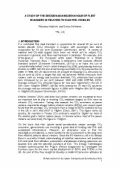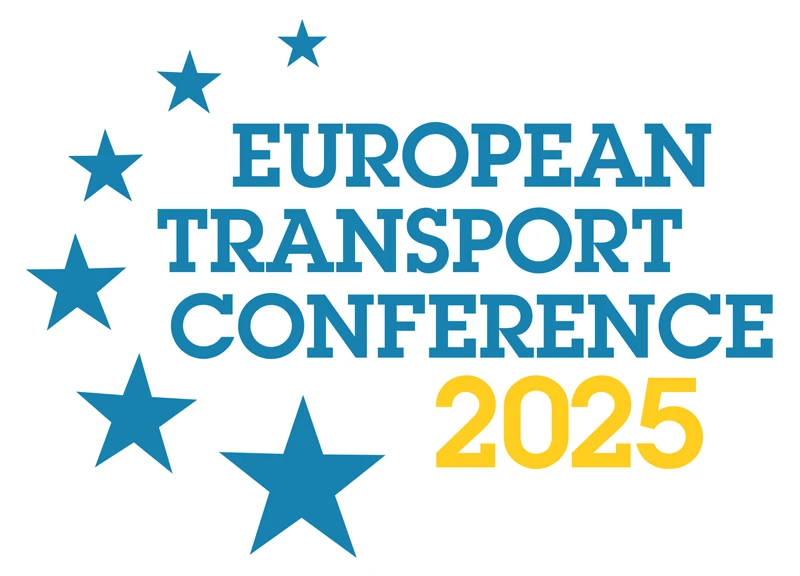-
Past ETC Papers

Browse, search and view papers from the past AET Conferences.
-
Members' Area

AET promotes networking and exchange of ideas, information and opportunities amongst members.
Conference Papers 2012
Glasgow, United Kingdom
ETC Conference Papers 2012
A study of the decision-making behaviour of fleet managers in relation to electric vehicles
Seminar
Day 1 (8 Oct 2012), Towards a Sustainable Fleet, ELECTRIC VEHICLES: PLANNING FOR MORE SUSTAINABLE TRANSPORT, 11:00 - 13:00
Status
Accepted, documents submitted
Authors
R Hutchins, E Delmonte, TRL, UK
Short abstract
In order to expand on the limited existing research base, and to investigate fleet managers current purchase behaviours and perceptions of electric vehicles, structured telephone interviews were conducted with 20 fleet managers.
Abstract
Between 2005 and 2008 fleet vehicles made up 58% of new car purchases in the UK car market (DfT 2010). However, fleet vehicle purchasing behaviour is an area in which little research has been undertaken. While we know that private consumers' vehicle purchasing decisions are driven by socio-demographic factors such as attitudes, personality, lifestyle, and emotional attachment, there is a limited understanding of the decision-making processes involved in purchasing vehicle fleets. This is particularly true in relation to electric vehicles (e.g. Figliozzi et al 2011).
Research suggests that fleet managers place high importance on a vehicle's whole life cost and are highly conscious of available financial incentives (e.g. Government grants) (Lane & Potter 2007). Lane (2005) conducted a study into fleet managers' economic purchase priorities and identified some key economic factors that are considered by fleet managers when making purchasing decisions. These include: total cost of ownership; capital cost; running costs; residual values; tax and Government incentives. Other important factors found to influence fleet purchasers include company image, vehicle reliability and maintenance.
In order to expand on the limited existing research base, and to investigate fleet managers current purchase behaviours and perceptions of electric vehicles, structured telephone interviews were conducted with 20 fleet managers representing a variety of industry sectors and fleet sizes. The work was conducted as part of a larger study of consumer attitudes towards electric vehicles (EVs). An information sheet was provided to participants prior to the interview to ensure that they had a basic understanding of battery electric vehicles (BEVs) and plug-in hybrid electric vehicles (PHEVs)- collectively 'EVs' - and how they compare to traditional vehicles.
Several different approaches were described for fleet decision-making, ranging from formal to informal, with varying levels of autonomy and involving a variety of personnel. The sample mapped well onto the categorisation of decision-making structures proposed by Nesbitt and Sperling (2001). The amount of choice that fleet managers had over the allocation of fleet vehicles also varied, with some having full control and prescribing exactly which makes and models would be allocated to the fleet, while others had less control and felt that drivers had too much freedom when choosing their fleet vehicle. This suggests that EV marketing strategies will need to be targeted towards the different structures of decision making found within organisations.
The amount of choice that fleet managers had over the allocation of fleet vehicles also varied, with some having full control and prescribing exactly which makes and models would be allocated to the fleet, while others had less control and felt that drivers had too much freedom when choosing their fleet vehicle. This suggests that EV marketing strategies will need to be targeted towards the different structures of decision making found within organisations.
Documents:

Association For
European Transport
Forester House
Doctors Lane
Henley-in-Arden
Warwickshire, UK
B95 5AW
+44 (0) 15 64 793552
VAT number: 710 1866 64
Conference Supporters & Endorsers




Legal Entity
The Association for European Transport is registered as an Association ('vereniging') with the Chamber of Commerce for Haaglanden in The Netherlands under company number 27170096.
Built on Zenario




